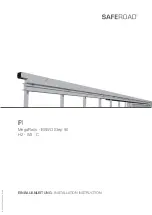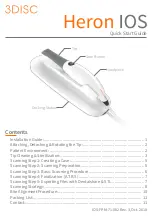
Chapter 14 - Notes on battery use
PROFIBUS Tester BC-700-PB - User Manual
55
14.2.3 Discharging
The energy management of the device complies with the following recommendations for
discharging lithium ion batteries:
You may not discharge the battery more than 80 % of nominal capacity.
Do not discharge battery to a level below 3.3 V per cell under load. Deep discharge
below 3.3 V per cell can deteriorate battery performance and without load not less than
3.5 V.
Operating Temperatures Discharge, refer to
(operating temperature).
14.2.4 Storage and transportation
Store battery at room temperature between 12°C/53F and 18°C/65F for best results.
(This corresponds to a battery charge level of 33%, refer to
).
Do not expose battery pack to direct sunlight (heat) for extended periods
When transporting or temporarily storing in a vehicle, temperature range should be
greater than 7°C/20F, but no more than 66°C/150F.
Storing battery at temperatures greater than 77°C/170F for extended periods of time
(more than 2 hours) may cause damage to battery and possible fire.
14.2.5 Battery life
Charging and discharging will typically wear out the battery pack over the time. Due to this
aging the usable battery capacity will decrease accordingly. Higher current loads and deep
discharge processes will considerably increase the aging process.
You will have best results with respect to battery life, if you
avoid deep discharging
charge the battery properly
store the battery at recommended temperatures
avoid overloading
switch off the device when not being used for a longer period of time.
14.2.6 Battery warranty
Product warranty is limited to original defects in material and workmanship. Warranty
does not cover collateral damage. Due to the nature and use of this product there is no
term warranty. Misuse, abuse, incorrect charging and other inappropriate use of this
product are not covered under warranty.
If you do not agree with these conditions, return the lithium polymer battery immediately
and before any use.
56
35






































